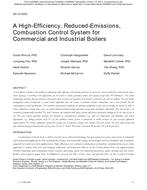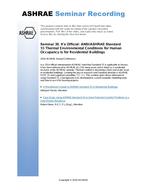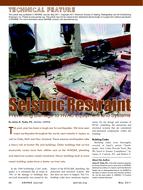Atria can be characterised by many thermal processes and conditions, such as dynamic air temperature stratification, extreme skylight surface temperature variations, differential interior surface temperatures, greater natural convection air velocities, and a multi-level zoning behaviour. Unfortunately, these processes are not well understood by designers and as a result many atria are operational liabilities rather than assets. Describes several studies conducted at a major US university to increase understanding of the thermodynamic behaviour of these spaces. These studies were for existing and proposed spaces, and the methods included in-situ monitoring and scale modelling. The analytical methods include inspection of time-series plots, computer-generated thermal imaging, and multivariate linear regression. The scale-model studies used fluid mapping and wind tunnel tests to examine the opportunities for naturally venting the excess heat that accumulates near the skylight. The results led to recommendations to the university architect, utilities department, and consulting engineers for more efficient design and operation of these spaces. The analytical procedures, the results, and their implications for HVAC system operation are discussed.
KEYWORDS: case studies, monitoring, atria, air temperature, temperature stratification, skylights, surface temperature, designing, USA, thermodynamics, models, computers, mapping, fluids, wind tunnels, testing, natural ventilation, building services.
Citation: Symposium, ASHRAE Transactions 1993, Vol.99, pt.1
Product Details
- Published:
- 1993
- Number of Pages:
- 12
- File Size:
- 1 file , 1.5 MB
- Product Code(s):
- D-18215


